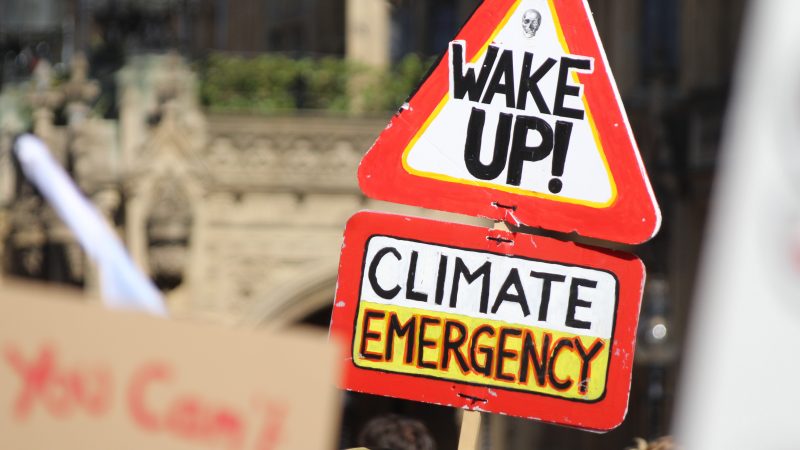
Barry Gardiner has eloquently explained what the climate and ecological emergency bill is all about in a previous article for LabourList. The legislation is needed to ensure that the government tackles the climate emergency effectively and prevents further species loss. Well over 100 MPs are now signatories to the bill, which is now due its second reading, yet the Labour Party still has not lent its official support to it. There are four reasons why this should change.
First, this is an emergency and we cannot wait until Labour is back in power before decisive action is taken. And this is not a task for Labour on its own: a cross-party approach is needed, as Clive Lewis has argued alongside other opposition MPs. With Labour’s support, the bill could be enacted before the next general election; without that support, such success is unlikely, as only one Conservative MP so far has come out in favour of the bill.
Second, existing legislation, namely the Climate Change Act 2008, as interpreted by the Committee on Climate Change (CCC), is not enough to ensure that the UK makes its fair contribution under the Paris Agreement to avoid global climate catastrophe, even if the carbon budgets set by the CCC under that Act are not overspent. The CCC’s budgets fall short on several counts:
- They take account only of greenhouse gases emitted in the UK, so do not include those arising from the imports we consume;
- The targets for emissions reduction are based on the assumption of only a 50% chance of meeting the target (e.g. net zero carbon by 2050) – that is, no better than the toss of a coin; and
- The budget of nine billion tonnes of carbon dioxide equivalent (9GtCO2e) set for 2018 to 2050 is far too generous because it is compliant with the Paris Agreement only at the level of a 50% chance of limiting global warming to 2ºC, and even then only if the UK’s historical emissions legacy and current capabilities are ignored.
What is required instead is a budget for limiting temperature increases to 1.5 degrees, which has a much higher probability of success and takes proper account of the UK’s particular responsibilities. The bill achieves this by requiring the UK’s contribution to emissions reduction to have at least a 66% chance of being consistent with limiting global warming to 1.5 degrees. This would result in a far tighter budget – one that would indeed, on current levels of emissions, be exhausted well before 2028.
Third, the climate crisis is strongly linked to the ecological crisis, which is at least just as important. However, this latter crisis has not yet been effectively addressed by legislation, and this is precisely what the CEE bill aims to do, by requiring the reversal by 2030 of the decline in the state of nature (biodiversity, natural habitats, ecosystems, and quality of air, soils and water) caused by our activities. This part of the bill is therefore crucial for ensuring the health and safety of future generations, and should accordingly attract widespread if not universal support.
Fourth, another unique feature of the bill is its extension of democratic participation through the setting up of a citizens’ or climate assembly, composed of a representative sample of the UK’s population, to deliberate on how emissions are to be reduced and how nature is to be restored. This assembly will have real power to determine the government’s strategy for meeting the bill’s targets – a strategy that will in turn have to be approved by the House of Commons. It is worth noting that this involves an enhancement of people power without in any way eroding the authority of that House.
This bill deserves to be supported by the Labour Party because it is essential in order to address the double emergency of global heating and ecological destruction. Existing legislation is just not effective enough. The bill should be welcomed by the wider labour movement, too, as it specifies how the British people can be involved in shaping the government’s strategy to respond to this double emergency.



More from LabourList
Humza Yousaf woes deepen as Labour files no-confidence vote in government
‘History and poll leads suggest Labour can be bolder, even if it costs some votes’
Labour warned ‘ethical foreign policy’ inevitably sparks charge of ‘hypocrisy’